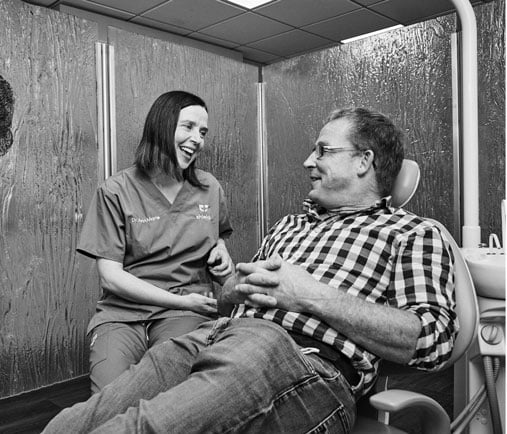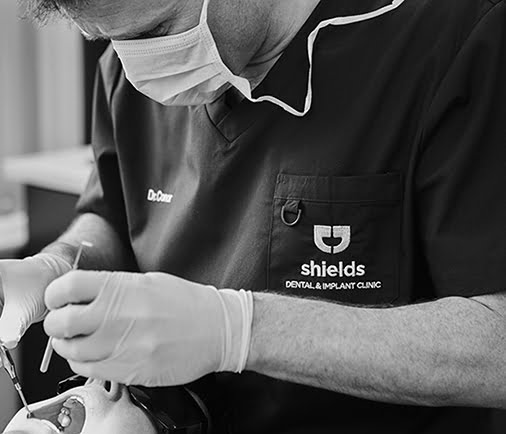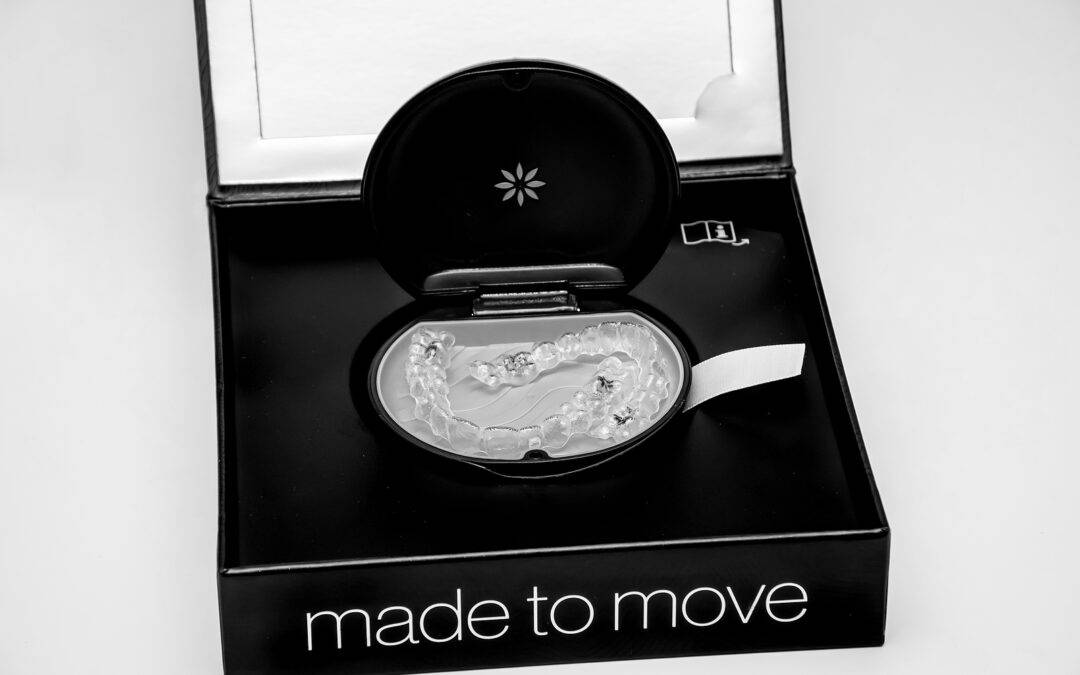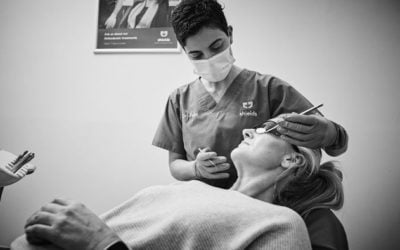There’s no reason to sugarcoat it; the idea of having a tooth removed is never going to be appealing. As dentists, we fully understand patients’ anxieties when they hear tooth removal is the best course of action for their health.

However, the methods used to remove teeth (such as in cases where wisdom teeth removal is necessary) are much more efficient today than in the past. We are also able to offer sedation for patients who might need a helping hand to relax during the tooth extraction procedure.
Aside from exploring the symptoms that indicate wisdom teeth removal might be necessary, we’re taking a look at other scenarios where tooth extraction is in the functional and cosmetic interests of your oral health.
When do I know when my wisdom teeth need to be removed?
Here are some common signs your wisdom teeth need to be removed:
Pain around your wisdom teeth
Pain is one of the most typical signs that your wisdom teeth are causing you problems. This can be sporadic pain or a persistent dull aching. You should come in and have yourself checked over if you are struggling with wisdom tooth pain, particularly as it can eventually worsen and affect your daily activities and concentration.
Inflamed gums
When your wisdom teeth start to erupt from your gums, they can become swollen and tender. You may notice that this makes brushing and flossing painful – you might even become lax with brushing and flossing, heightening your risk of decay and gum disease.
Bleeding gums
Bleeding gums can occur when wisdom teeth are coming through. Any ongoing of bleeding gums should be investigated by your hygienist.
Cysts
If you ignore the early warning signs that your wisdom teeth are infected and need antibiotics or that they might need to be removed, you could develop a cyst. A cyst is a fluid-filled sac that can eventually cause problems for your mouth and jaw. If you’ve noticed a cyst in your mouth, it’s high time you booked an appointment with your dentist at Shields Dental and Implant Clinic.
Jaw stiffness and pain
When wisdom teeth emerge inadequately, they can change the way your teeth bite together. This can cause stiffness that can impair your ability to open and close your mouth.
Crooked or overcrowded teeth
Your wisdom teeth can be stubborn – even when they don’t have any room to grow, they will continue to do so. It might be difficult to identify crooked wisdom teeth or overcrowding at the back of the mouth. Make sure you come in for regular visits with your dentist, so we can keep an eye on how your wisdom teeth are coming through.
When else might I need to have a tooth taken out?
Trauma
A tooth can be one of the first casualties when a knock to the mouth area occurs. Sports like squash, hockey, boxing and martial arts can all be problematic for your teeth (unless you wear adequate protection like a mouth guard. Over the years, we’ve seen many patients who have suffered a huge blow to a tooth, causing the blood supply to the tooth to cease. This means tooth removal is the most sensible course of action. However, we can offer treatment such as dental implants to replace teeth that need to be removed due to trauma.
Once your implant has been placed, we strongly recommend purchasing a customised mouthguard, to protect your teeth when you play sports that render your teeth vulnerable to injury.
Periodontal disease
Periodontal disease is the dental term for advanced gum disease. The progression of advanced gum disease can destroy the bone and gum surrounding your teeth, causing teeth to become loose. In some cases, we can perform a scaling and root planning procedure that targets plaque under the gum line. Your dentist will then smoothen your tooth roots so they can reattach to your teeth.
However, if the integrity of the bone and gum has deteriorated significantly, an extraction might be favourable. Once extracted, we can look at stabilising your condition and getting your jaw and gum prepared for a replacement tooth.
Overcrowding
Tooth crowding is a common issue caused by a lack of space in the mouth. Whilst it is an aesthetic problem, it is primarily considered a health problem, as it affects how you care for your teeth. Crowded teeth make it difficult to floss and brush, as the tooth surfaces are not fully exposed.
If we identify that you have crowded teeth, we may suggest orthodontic treatment to correct the alignment of your teeth. Pre-orthodontic tooth extraction occurs in approximately 25% of cases.
We may suggest having 1 or 2 teeth removed, depending on the condition of your oral health. This can allow your brace to work more efficiently when re-aligning your teeth and streamline the whole process. Removing failing teeth will also improve the overall health of your mouth.
We will always give you a full, jargon-free explanation of why tooth extraction is favourable before you begin your orthodontic treatment with us.
Tooth decay
Tooth decay happens when bacteria in the mouth feed on sugary and starchy food and drink. These bacteria then transform these into acids, which amalgamate with the bacteria, creating plaque. The acids in plaque are responsible for enamel erosion and cavities (holes in your teeth).
Removal is the best course of action when decay reaches an advanced stage and damages the tooth to the point where a root canal is no longer appropriate to treat it. Not only does taking the affected tooth out help to cease the severity of unpleasant symptoms like pain, swelling and redness, but it can also prevent the infection from entering the bloodstream and causing severe wider health problems.
Contact our friendly reception team to book your appointment at our dental clinic
Whether you need a routine dental check-up or you’re struggling with any of the symptoms we’ve listed above, we can help. Contact us to book your appointment at one of our reputable clinics.







